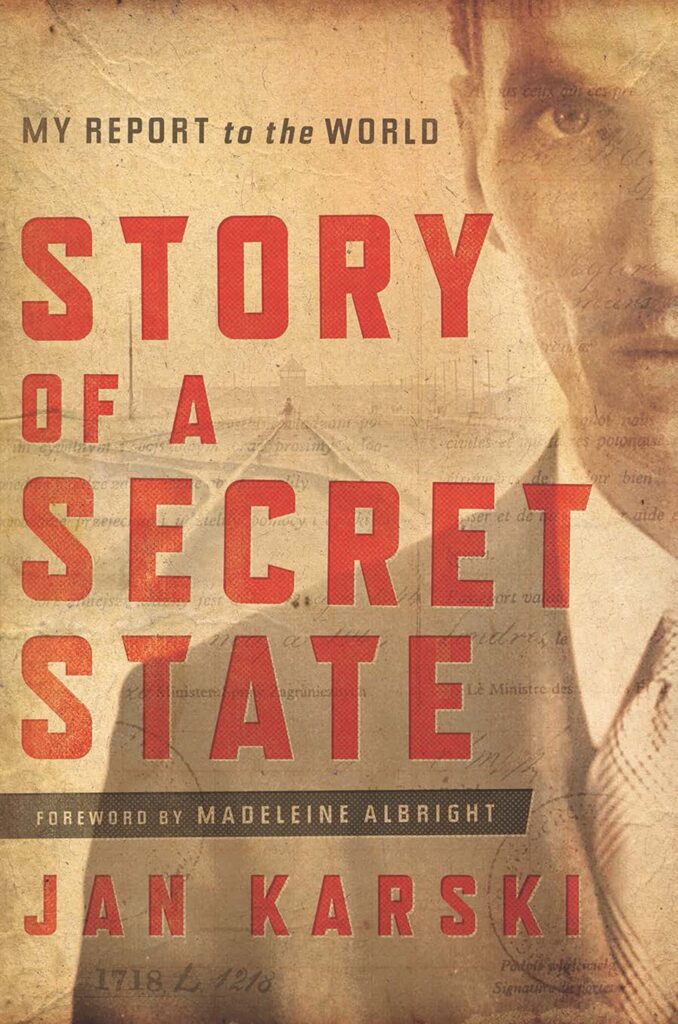
If you believe the human being is a fundamentally good and moral creature, then this true story might be one of the hardest things you can read: a stark view of humankind’s special ability to both inflict evil and ignore it.
As a courier for the Polish underground in World War II, Karski crisscrosses his homeland and compiles a report on the state of the country under occupation—a report that ultimately shocks Western leaders who don’t want to hear about an inconvenient thing called the Holocaust.
Despite this book’s stiff English translation, the contents grab you by the throat. In equally harrowing chapters, Karski survives torture by the Gestapo, finds safe passage INTO the Warsaw Ghetto, and impersonates an Estonian death-camp guard in order to corroborate accounts of atrocities (Nazi gas chambers seem almost humane compared to what Karski sees in Belzec).
Throughout all this, he maintains an ennobling ability to boil information down into a form that might move Western politicians to act—or at least to believe him. (Sadly, although most of them believed him, they didn’t act to save Jewish lives.) Karski is unnaturally brave and principled, but his story suggests we are a lot less moral than we think we are. This book is an essential part of the historical record of the war and a clear reminder that evil flourishes when good men do nothing. Reviewed on Nov. 12, 2020